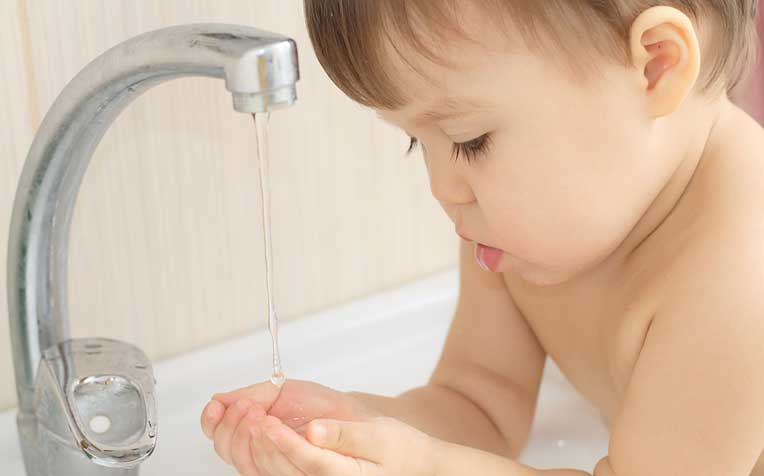
Prevent the spread of rotavirus infections by keeping your baby's and your hands clean.
The Gastroenterology Service at KK Women's and Children's Hospital (KKH), a member of SingHealth group shares 3 things about the rotavirus infection.
Understand how rotavirus infections spread
The rotavirus spread mainly through the oral-faecal route. The infection often happens in places where there are many children, such as childcare centres. Germs can easily get onto playing and sleeping areas – like toys, sinks and even doorknobs.Prof Phua adds: “Rotavirus can also be very resistant, staying alive on contaminated surfaces for days. So keep your baby’s and own hands clean, especially after changing diapers.”
Watch out for dehydration in an infected child
When a child is down with a rotavirus infection, it is crucial to prevent dehydration. “The most important point in managing rotavirus infection is drinking fluid. Rehydration drinks suitable for children to help replace fluids and electrolytes, can also be prescribed, if the doctor finds it necessary,” says Professor Phua Kong Boo, Emeritus Consultant at the Gastroenterology Service of KK Women’s and Children’s Hospital (KKH).
Most importantly, watch out for signs of severe dehydration like a dry mouth and no wet diapers for more than 12 hours. If this happens, send your child to the hospital immediately. Follow the doctor’s advice as closely as possible, change your child’s diapers as soon as they’re soiled and keep him or her comfortable.
Get your baby vaccinated for rotavirus!
In the Asia-Pacific region, rotavirus accounts for the most common cause of diarrhoea and dehydration in young children. An Asia-based study showed vaccination as the most effective public health strategy to prevent rotavirus gastroenteritis. The rotavirus vaccine is given orally and needs to be started before the age of 4 months.
In the 2010 KKH study, while 54 per cent of polled parents had heard of rotavirus vaccination, only 17 per cent actually had their babies vaccinated.
“Rotavirus vaccines have been in use worldwide since 2006 and are safe,” says Prof Phua. “Two oral rotavirus vaccines are available. Typically, a baby can either receive two doses of the rotavirus vaccine, up to six months of age or three doses of the other vaccine up to the age of 8 months.” Check with your doctor.
Ref: U11
Contributed by














 Get it on Google Play
Get it on Google Play